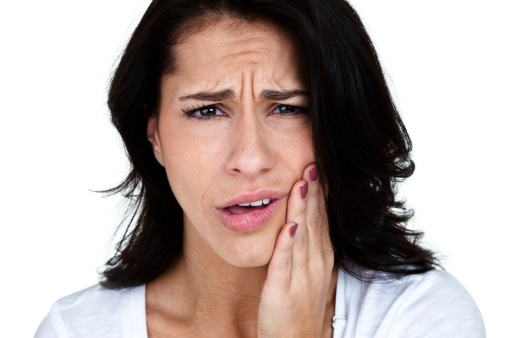
There are many common misconceptions about jaw pain. One is that dental problems always cause it. While dental problems can certainly cause jaw pain, there are many other potential causes. For example, temporomandibular joint disorder (TMJ) is a common cause of jaw pain. TMJ occurs when the joints that connect the lower jaw to the skull become inflamed or damaged. This can be caused by a variety of things, including clenching or grinding the teeth, injury to the jaw, arthritis, and even stress.
Another common misconception about jaw pain is that it always indicates a serious problem. While some causes of jaw pain can be quite serious, such as cancer or a heart attack, many other causes are much less serious and can be easily treated. Jaw pain that can usually be treated with simple lifestyle changes, such as avoiding trigger foods and beverages, practicing relaxation techniques, and using an over-the-counter pain reliever.
If you are experiencing jaw pain, it is important to see a doctor or dentist determine the cause. Only a professional can properly diagnose the cause of your jaw pain and recommend the best course of treatment. However, by understanding the potential causes of jaw pain, you can be sure to seek medical help if the pain is severe or does not improve with home treatment.
What Can Cause Jaw Pain?
Dental Problems: Dental problems are one of the most common causes of jaw pain. Things like cavities, abscesses, impacted wisdom teeth, and gum disease can all cause Jaw Pain. If you are experiencing any type of dental problem, it is important to see a dentist as soon as possible.
TMJ: TMJ, or temporomandibular joint disorder, is a very common cause of jaw pain. The temporomandibular joints are the joints that connect your lower jaw to your skull. Things like clenching or grinding your teeth, injury to the jaw, arthritis, and even stress can cause TMJ.
Cancer: While cancer is not a common cause of jaw pain, it is possible. Jaw pain can be caused by the mouth, throat, or tongue cancers. If you are experiencing any type of jaw pain, it is important to see a doctor or dentist so they can properly diagnose and treat the condition.
Heart Attack: While jaw pain is not usually the first symptom of a heart attack, it is possible. If you are experiencing jaw pain, chest pain, shortness of breath, or nausea, it is important to seek medical help immediately, as these could be signs of a heart attack.
There are many other potential causes of jaw pain, including:
Injury to the Jaw: An injury to the jaw, whether from a fall, car accident, or sports injury, can cause jaw pain. If you have recently injured your jaw, it is important to see a doctor or dentist so they can properly diagnose and treat the condition.
Arthritis: Arthritis is a common cause of jaw pain. There are several different types of arthritis that can affect the jaw, including osteoarthritis and rheumatoid arthritis.
Stress: Stress is another common cause of jaw pain. Stress can also worsen other conditions that cause jaw pain, such as arthritis. If you are experiencing stress-related jaw pain, it is important to find ways to relax and de-stress.
Jaw pain can vary in intensity from mild to severe. It may be constant or come and go. Other common symptoms of jaw pain include:
- Headache
- Earache
- Toothache
- Pain when chewing or biting
- Jaw stiffness or locking
- Clicking, popping or grinding sounds when moving the jaw
- Swelling of the face or jaw
Salivary Duct Stones: Salivary duct stones are small, hard deposits that form in the salivary glands. They can block the flow of saliva and cause pain and swelling in the affected gland.
Trigeminal Neuralgia: Trigeminal neuralgia is a condition that causes episodes of severe shooting pain in the face. The pain is usually caused by something touching the trigeminal nerve, such as brushing your teeth or putting on makeup.
Atypical Facial Pain: Atypical facial pain is a type of chronic pain that affects the face. It is often described as a burning or dull ache. The exact cause of atypical facial pain is unknown, but it is thought to be related to the trigeminal nerve.
Otitis Externa: Otitis externa, also known as a swimmer’s ear, is an infection of the ear canal. It is often caused by water that stays in the ear after swimming or bathing. Symptoms of otitis externa include pain, itching, and drainage from the affected ear.
Glossopharyngeal Neuralgia: Glossopharyngeal neuralgia is a condition that causes episodes of severe pain in the throat and back of the tongue. The pain is usually caused by something touching the glossopharyngeal nerve, such as swallowing or yawning.
The most common people that get it are women over the age of 50, although it can affect people of any age. While jaw pain is often not a serious condition, it can be very painful and disruptive. Even your posture can worsen, and you may find it difficult to eat or speak.
If you constantly chew gum, you may be putting your jaw joints under a lot of strain. This can also lead to pain and TMJ disorders.
Jaw pain is a common condition that can be caused by a variety of things, including dental problems, TMJ disorders, and even stress. Make sure you list out your own potential causes for your pain with your doctor. Sometimes doing it yourself will not be the solution.
- What should you do if you are experiencing Jaw Pain?
If you are experiencing jaw pain, there are several things you can do at home to help relieve the pain. These include:
- Taking over-the-counter pain medication such as ibuprofen or acetaminophen
- Applying ice to the affected area for 20 minutes at a time, several times a day
- Avoiding hard or chewy foods
- Practicing relaxation techniques such as deep breathing or progressive muscle relaxation
If home treatment does not relieve the pain, or if the pain is severe, you should see a doctor or dentist. They will be able to properly diagnose and treat the condition.



